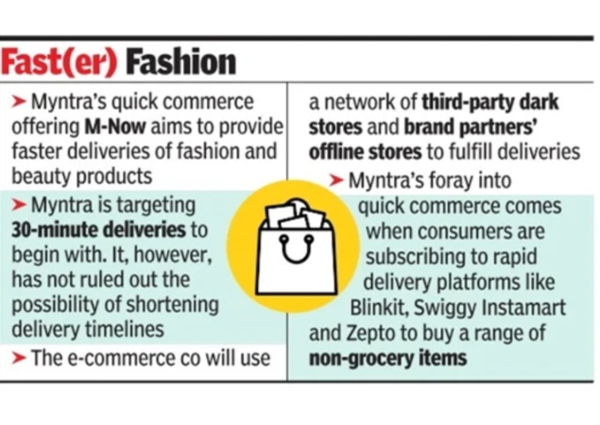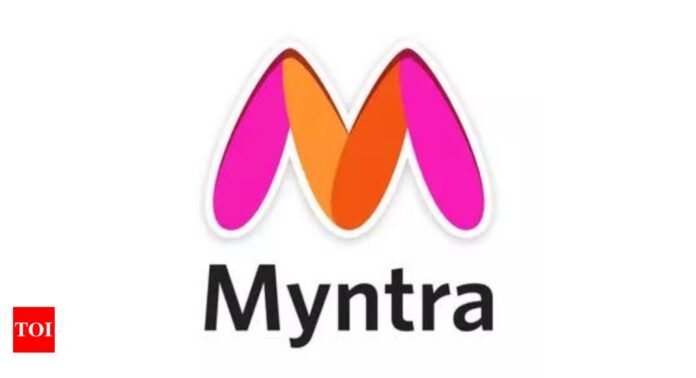MUMBAI: As more brands hop onto quick commerce platforms to reach a wider set of customers and tap into the growing instant shopping opportunity, it is nudging ecommerce companies to look the same way.
Myntra is the latest to join the quick commerce rush. With its M-Now offering, it will provide users with faster deliveries of fashion and beauty products. To begin with, Myntra is targeting 30-minute deliveries to cater to young shoppers who are seeking new styles at the tap of their smartphones and faster doorstep delivery of fashion. In an interaction, CEO Nandita Sinha did not rule out the possibility of shortening delivery timelines going ahead, although she did not share any specifics. “The young Gen Z, millennial customers have a higher need for gratification which is quicker… their wardrobes are becoming very expansive and diverse and it is not just about a product but entire styling solutions. Their adoption (of M-Now) will be much faster,” Sinha told TOI.

Myntra will use a network of third-party dark stores and offline stores of its brand partners to fulfil the deliveries as of now. The company’s foray into the quick commerce space comes at a time when consumers are subscribing to 10-minute rapid delivery to buy a range of non-grocery items, moving some amount of their e-commerce spends to quick commerce platforms and posing a challenge for players like Myntra. Of late, brands like Fabindia, Decathlon, Adidas, U.S. Polo Assn. and Paragon have introduced their selection on quick commerce platforms while several others are mulling adding quick commerce to their product distribution mix. “I think the big problem to be solved in fashion is getting the right selection in 30 minutes. Also, as we expand the network, we have to expand the logistics capabilities. That is new for us and that’s where we will put in the hard work,” Sinha said, adding that postpandemic, fashion shopping occasions have widened, pushing brands to do more.
In India, quick commerce as a service started with rapid delivery of groceries but players soon expanded their selection to cover a range of nongrocery categories — ranging from electronic items and accessories, small kitchen appliances, toys, luggage bags to occasionally even iPhones. This has been nudging e-commerce firms to reduce their delivery timelines in general.


